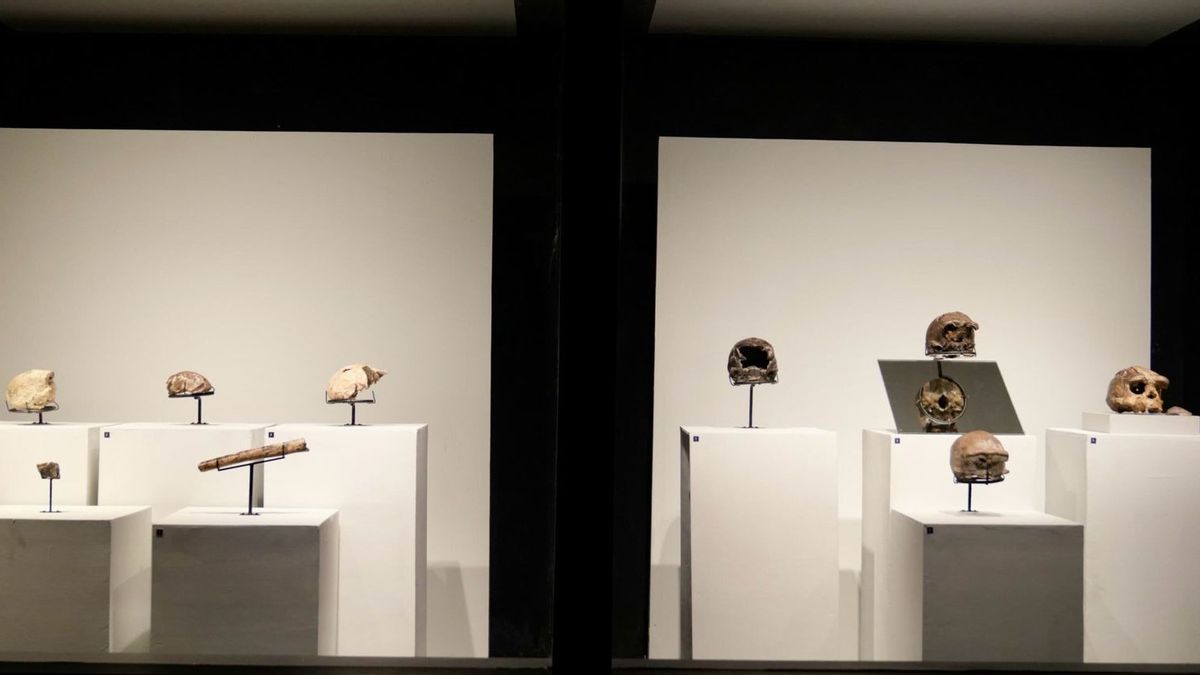JAKARTA For the first time, the ancient human fossil exhibition Pithecanthropus was held at the National Museum of Indonesia, organized by the Ministry of Culture of the Republic of Indonesia.
The exhibition entitled "Indonesia: The Oldest Civilization on Earth? 130 Years After Pithecanthropus Erekus" celebrates 130 years of discovery of Pithecanthropus erectus or Javanese Ancient Humans by Eugène Dubois in 1894 on the banks of the Bengawan Solo River.
Minister of Culture Fadli Zon in his speech emphasized Indonesia's position as part of the oldest civilization in the world. He said that the discovery not only confirmed Indonesia in the map of global paleoanthropology, but also placed this country as an important point in human evolution.
"This discovery is not only a historic moment in science, but also an achievement that strengthens Indonesia's position in the big stories of human origins," he said.
Indonesia is known as a place with the largest ancient human fossil collection in Southeast Asia, with more than 60% of Homo-erectus findings found in Indonesia, especially in Java. Archaeological sites such as Sangiran, Trinil, and Ngandong have uncovered fossils over 1.5 million years old, making Indonesia an important center in ancient human development.
These findings show that our homeland plays an important role in global understanding of human evolution, added Fadli Zon. "The archipelago area is the center of a very rich and complex ancient civilization, which is the key to understanding the origins of mankind."
The exhibition features a variety of highly valuable fossils and artifacts, including the S-17 Homo-erectus skull, the most complete skull ever found and for the first time exhibited to the public. In addition, ancient fauna fossils such as Mastodon and Stegodon also enrich the narrative about the early ecosystem in the archipelago, which describes the dynamic environment where various species coexist.
In the global discourse on human origins, the theory "Out of Africa" has long been dominant. However, the discovery of ancient human fossils in Indonesia provides a different perspective, which complements or even revises the narrative. "These fossils show that the archipelago region is an important place for ancient humans to learn to survive, adapt and develop," said Fadli Zon.
VOIR éGALEMENT:
"Through this exhibition, we remind the world that human civilization not only started in Africa, but also found its strength and complexity in the archipelago," he continued, asserting that Indonesia has a crucial role in redefining the history of human evolution globally.
The Ministry of Culture is committed to continuing to preserve and advance Indonesia's cultural heritage. This exhibition is a tangible manifestation of efforts to strengthen national culture, as mandated in Article 32 Paragraph (1) of the 1945 Constitution and Law no. 5 of 2017 concerning the Advancement of Culture.
The Minister of Culture also invited the younger generation of Indonesia to take inspiration from this legacy. "With the understanding that our heritage is global, we can make Indonesia a center for learning and contribution to world civilization," he said.
Exhibition "Indonesia: The Oldest Civilization on Earth?" displays more than 20 important collections, including original collections of well-known museums such as the Bandung Geological Museum, the Sangiran Ancient Human Museum, and the Tantular Mpu State Museum. This exhibition can be visited by the public starting December 21, 2024 at the Indonesian National Museum.
The English, Chinese, Japanese, Arabic, and French versions are automatically generated by the AI. So there may still be inaccuracies in translating, please always see Indonesian as our main language. (system supported by DigitalSiber.id)











